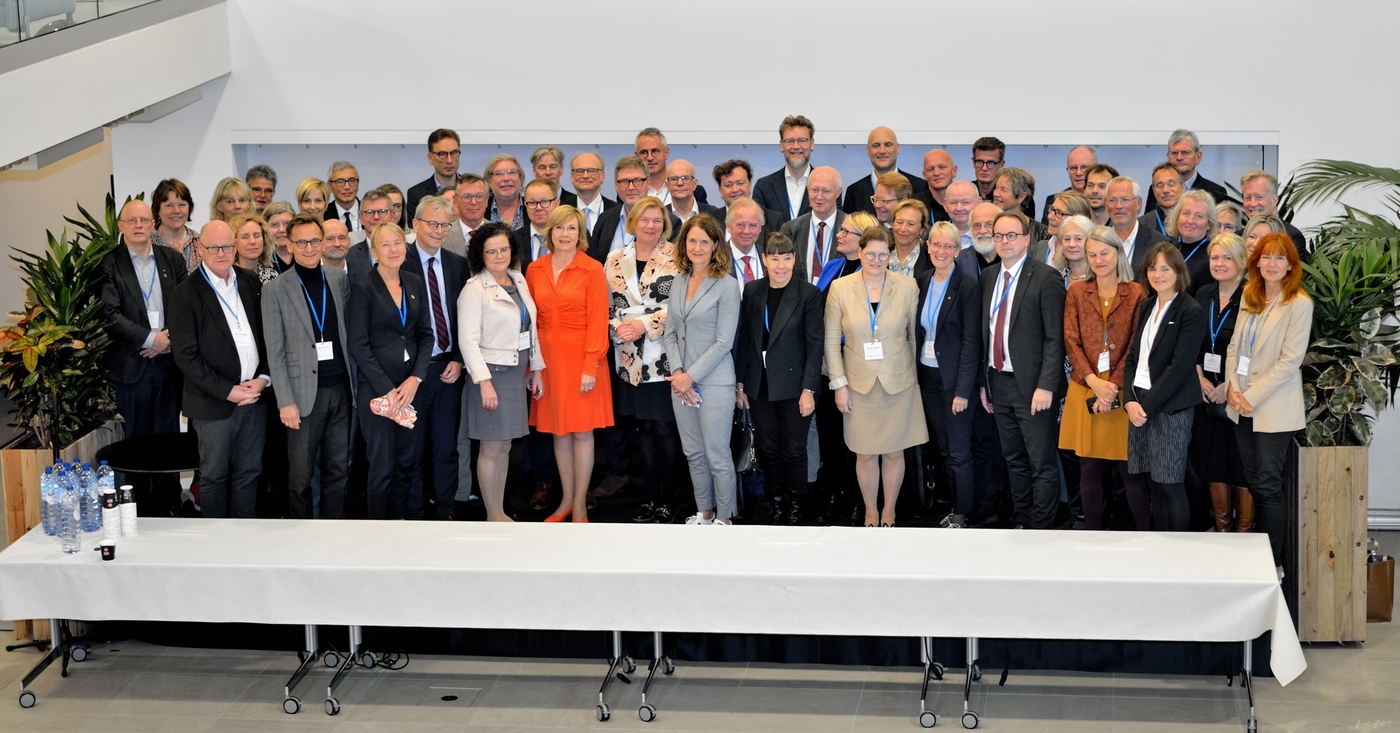- A clear message from the meeting of Nordic university rectors in Brussels
International cooperation with partners outside Europe, global academic values, and science-based policy making are among the areas that should be prioritised according to the rectors of Nordic universities who met in Brussels this week with various representatives of the European Union. The rectors have issued a statement with six key messages relevant to the future of Europe and the Nordic academic community.
The rectors met on 26 and 27 September at an event called Nordic University Days, organised by NUS, the Nordic University Association. Iceland is currently heading NUS under the leadership of Jón Atli Benediktsson, Rector of the University of Iceland, who therefore played a key role at the conference in Brussels.
Rectors and pro-rectors from a total of 62 Nordic universities attended the Nordic University Days this year, which provided an excellent opportunity to talk with high ranking EU representatives about Nordic priorities in higher education, research and innovation, as well as the focus of future strategic planning for EU frameworks, Horizon Europe and Erasmus+. For example, the rectors met with Margrethe Vestager, Executive Vice President of the European Commission for A Europe Fit for the Digital Age; Signe Ratso, Deputy Director-General for Research and Innovation; and Maria Leptin, President of the European Research Council, the last of whom participated in a panel discussion chaired by Jón Atli.
Following the conference, leaders of Nordic universities issued a statement outlining their shared vision for the European Knowledge Area. The statement emphasises six key messages:
- Nordic universities continue to prioritise academic freedom and institutional autonomy in terms of research, teaching and expression, without fear of societal, political or religious interference. In this context, though, we should consider moving away from undefined concepts such as 'European values' and towards academic fundamental values, since universities are global by nature and so are their values.
- Nordic universities are open to entering into dialogue with the EU and member states on how to improve the structures of engagement of science-based policy. Universities produce knowledge in many different areas that serves as a key input for policy to address contemporary challenges, e.g. the UN Sustainable Development Goals. We must ensure that knowledge created by universities is presented to policy-makers but also that researchers are able to contribute to policy-making processes without being subjected to harassment and threats.
- All EU higher education and research policy should be developed with input from members states and universities to ensure that it is aligned to the needs and goals of member states and university communities. Universities are the main actors in implementing EU research policy and meaningful engagement with universities will ensure the successful implementation of a European Research Area in which all universities can thrive.
- We must continue to invest in excellent research, education and innovation in order to support the green and digital transition in our societies. Universities are playing a key role in this transition, both by developing new, sustainable solutions and by empowering people through education to find new opportunities in our changing societies.
- To boost competitiveness in addressing various challenges such as pandemics and climate change, international R&I cooperation with partners outside Europe is essential. The COVID-19 pandemic has highlighted the importance of international scientific collaboration based on a shared commitment to academic freedom and integrity.
- EU research and innovation programmes have long been the most international and open to the world and this must continue. Nordic universities are committed to preserving and protecting the freedom of research and to maintaining research environments that promote the free exchange of research results.
"The Nordic University Days 2022 was a terrific opportunity for university leaders from the Nordics to meet and discuss. In this years’ Key Messages from the Nordic University Days, we share our views and Nordic visions for the European Knowledge Area, something which is very important for Nordic Universities relating both to research and education funding and the changing university landscape in Europe. Several leaders from the EU institutions joined us and engaged in our discussions. This has been very beneficial and something we will build on in the Nordic context," said Jón Atli Benediktsson, Rector of the University of Iceland and Chair of the Nordic University Association.




